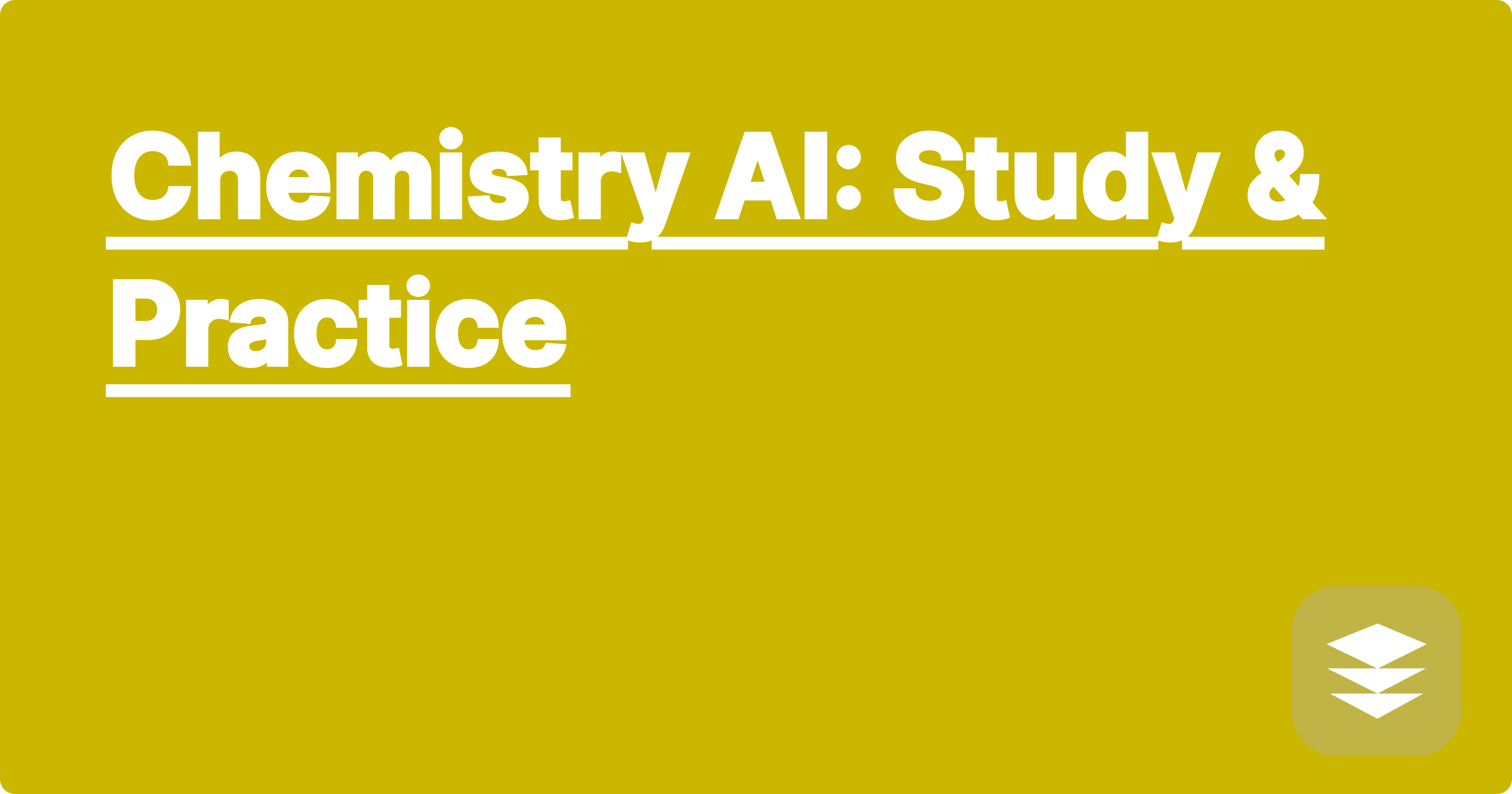
The world of STEM education and research presents unique challenges, often demanding immense effort to grasp complex concepts and solve intricate problems. Chemistry, with its vast array of reactions, mechanisms, and properties, can be particularly daunting. Fortunately, the advent of artificial intelligence offers powerful new tools to enhance learning, accelerate research, and ultimately, unlock a deeper understanding of the chemical world. AI can bridge knowledge gaps, provide personalized learning experiences, and offer novel approaches to problem-solving, transforming how we approach chemistry.
This evolution in learning and research is particularly crucial for STEM students and researchers. The ability to leverage AI effectively can significantly impact academic performance, research productivity, and career advancement. Mastering these tools will equip the next generation of scientists and engineers with the skills necessary to navigate the increasingly complex landscape of scientific discovery. This blog post will delve into the practical applications of AI in chemistry, providing a detailed guide on how to leverage these tools for effective study and research.
Chemistry encompasses a vast body of knowledge, ranging from the fundamental principles of atomic structure to the intricacies of complex organic synthesis. Students often struggle with visualizing molecular structures, understanding reaction mechanisms, and applying theoretical concepts to practical problems. Researchers face challenges in analyzing large datasets, designing experiments, and predicting the properties of novel compounds. The sheer volume of information and the inherent complexity of chemical phenomena can be overwhelming, hindering progress and creating significant learning hurdles. Moreover, traditional learning methods often lack the personalization and interactivity needed to cater to individual learning styles and paces, further exacerbating these challenges.
AI-powered tools like ChatGPT, Claude, and Wolfram Alpha offer a transformative approach to learning and practicing chemistry. These platforms can provide on-demand explanations of complex concepts, generate practice problems tailored to specific learning objectives, and even predict the outcomes of chemical reactions. ChatGPT and Claude excel at providing conversational explanations and answering conceptual questions, while Wolfram Alpha excels at performing complex calculations, providing data on chemical properties, and visualizing molecular structures. By integrating these tools into their study and research workflows, students and researchers can gain a deeper understanding of chemical principles, improve problem-solving skills, and accelerate their progress.
To effectively use these AI tools, begin by clearly defining the problem or concept you wish to explore. For example, if you're struggling with understanding the mechanism of a specific organic reaction, articulate the reaction and the aspects you find challenging. Next, choose the appropriate AI tool for the task. For conceptual questions and explanations, ChatGPT or Claude are excellent choices. For calculations, data retrieval, and visualization, Wolfram Alpha is often more suitable. Formulate a clear and concise prompt or query that accurately reflects your question or objective. For instance, you could ask ChatGPT to "Explain the SN1 reaction mechanism with an example" or ask Wolfram Alpha to "Calculate the molar mass of C6H12O6". Carefully analyze the output provided by the AI. Verify the information against established sources and critically evaluate the explanations provided. Iterate your prompts and queries as needed to refine the information and gain a deeper understanding of the topic.
Consider the example of understanding the concept of chirality. You could ask ChatGPT, "Explain chirality in organic molecules and provide an example." ChatGPT might then explain the concept, define enantiomers, and provide an example like a chiral carbon atom with four different substituents. Alternatively, if you need to calculate the pH of a solution, you can use Wolfram Alpha. Inputting a query like "Calculate the pH of a 0.1 M solution of HCl" will provide the calculated pH value along with relevant formulas and constants. For visualizing molecular structures, Wolfram Alpha can generate 3D models of molecules based on their chemical formulas. Inputting "C6H6" will generate a 3D model of benzene, allowing you to visualize its structure and understand its properties. These examples demonstrate the practical utility of AI tools in addressing diverse chemical problems and concepts.
To maximize the benefits of AI in your STEM studies and research, incorporate these tools strategically into your workflow. Use AI to supplement, not replace, traditional learning methods. Actively engage with the material and critically evaluate the information provided by AI tools. Develop a strong foundation in fundamental concepts before relying on AI for complex problem-solving. Experiment with different AI platforms and find the tools that best suit your learning style and research needs. Collaborate with peers and instructors to discuss AI-generated insights and explore different perspectives. By integrating AI thoughtfully and ethically, you can significantly enhance your understanding of chemistry and achieve greater academic success.
In conclusion, the integration of AI tools like ChatGPT, Claude, and Wolfram Alpha presents a significant opportunity to transform the landscape of chemistry education and research. By understanding the capabilities and limitations of these tools, and by employing them strategically, students and researchers can unlock new levels of understanding, accelerate their progress, and contribute meaningfully to the advancement of chemical science. Embrace these powerful tools, explore their potential, and embark on a journey of enhanced learning and discovery.
AI Robotics: Simulation & Design
Chemistry AI: Study & Practice
Bio AI Solver: Biology Problems